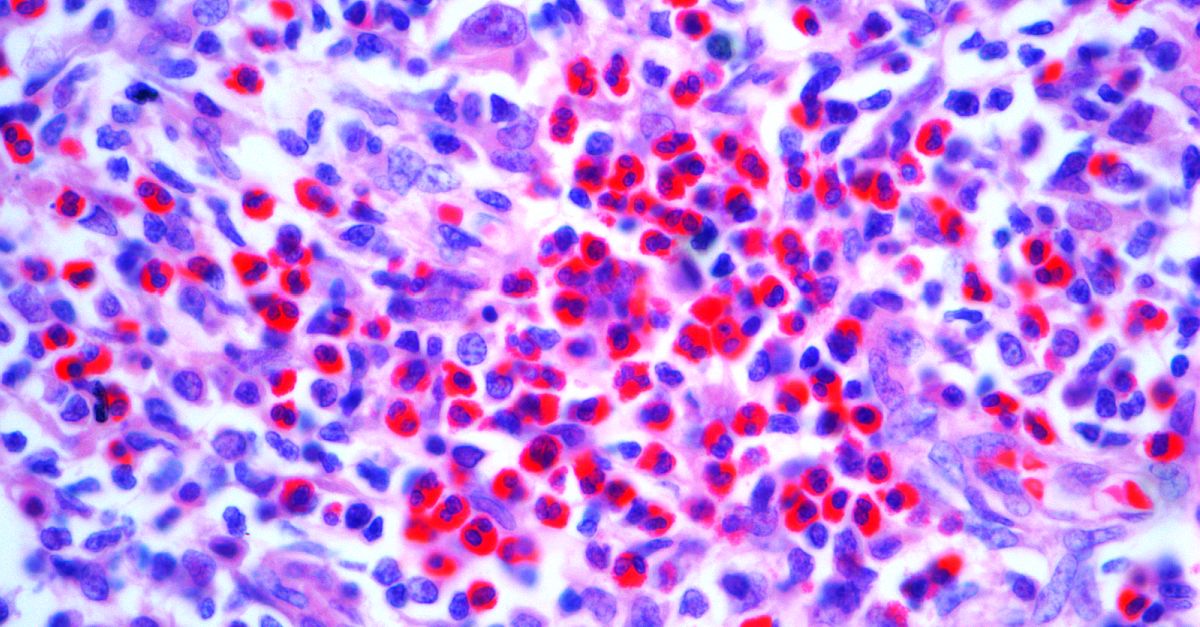Recent updates to clinical guidelines are expected to trigger a shift in the management of classic Hodgkin lymphoma (cHL) in 2022. Some key changes affect diagnosis and staging of all patients, as well as the treatment of patients with stage III–IV cHL.
With regard to diagnosis, an integrated positron emission tomography-computed tomography (PET-CT) scan or PET with diagnostic CT is now recommended for initial diagnosis and restaging for all stages of cHL. Additionally, it is recommended that special considerations should be given for patients with Deauville scores of 4 or 5. For patients with Deauville score of 4 after 2 cycles of doxorubicin, bleomycin, vinblastine, and dacarbazine (ABVD ) therapy, the degree of abnormality varies and should be factored into decisions about further therapy. Patients with a Deauville score of 5 should be rebiopsied, which would inform decisions about subsequent therapy or treatment escalation.
Key changes in treatment recommendations for patients with stage III–IV cHL have also been made. There is now uniform consensus recommending the use of brentuximab vedotin + doxorubicin, vinblastine, and dacarbazine (A + AVD) as a primary treatment in patients with stage III–IV cHL. This recommendation follows the June 2021 publication of the ECHELON-1 trial results in The Lancet Haematology. Subsequent data from ECHELON-1 have shown a statistically significant improvement in overall survival (secondary endpoint in the trial) in patients with advanced cHL following treatment with A + AVD. Patients receiving this regimen first-line had a 41% reduction in risk of death compared with patients receiving ABVD, with no new safety signals observed.
Another interesting update is that the addition of involved site radiation therapy to escalated bleomycin, etoposide, doxorubicin hydrochloride, cyclophosphamide, vincristine, procarbazine, and prednisone (BEACOPP ) should be considered for those with stage III–IV cHL classified as Deauville 1–3 after second, post-treatment restaging, or for those who are Deauville 4–5 with a negative biopsy. For third-line and later lines of therapy, it is recommended that cisplatin replace carboplatin in the gemcitabine, cisplatin, dexamethasone (GCD) regimen.
These updates were discussed with US oncologists in recent CASES* events that focused on the first-line treatment of HL. During the discussion, most participants felt the stronger recommendation for first-line use of A + AVD in stage III–IV cHL will increase the likelihood of commercial and Medicare insurance coverage for this treatment approach in the US.
High level
These guideline updates suggest there will soon be a shift in the management of patients with cHL. Decision makers should be sure to review all the guideline updates when revising health system protocols, pathways, and formularies for this patient population.
Ground level
The guideline update recommending A + AVD as primary treatment for patients with stage III–IV cHL may influence payor coverage decisions. This regimen, along with all the guideline updates, should be considered when making diagnosis and treatment decisions for patients with cHL.
*CASES is a series of insight reports in oncology and hematology, derived from regional, closed-door roundtables conducted by Aptitude Health. Syndicated versions of CASES reports are available to life science companies seeking information about a specific disease topic. Contact us to learn more.

